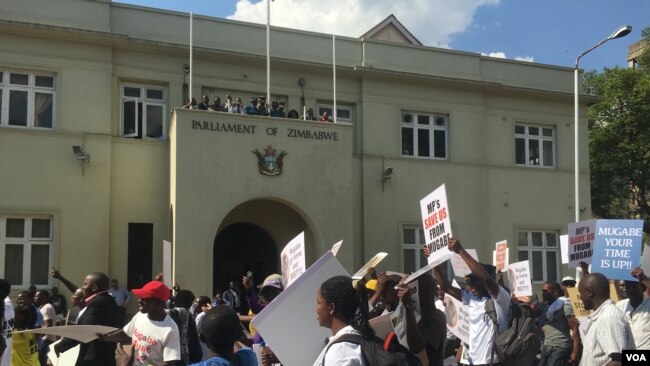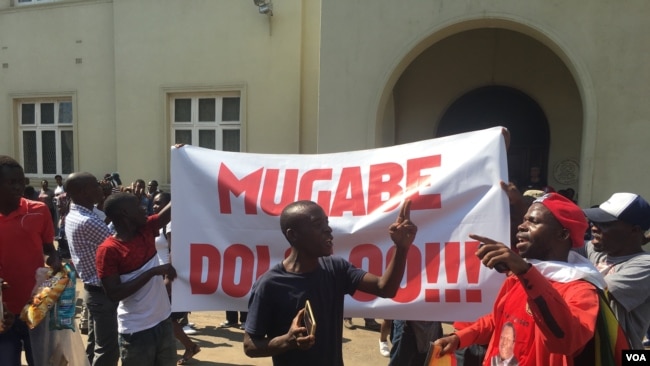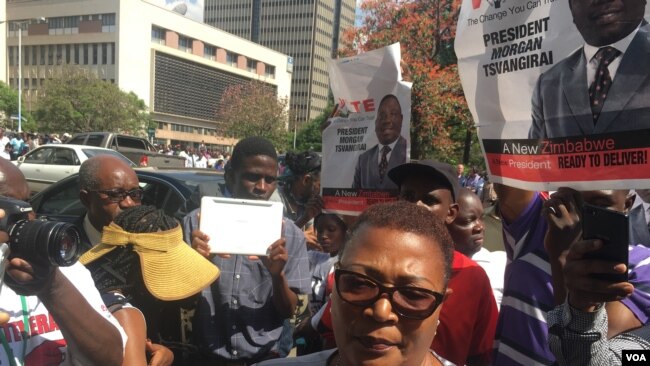“Zanu-PF is a sacred party,” he told a crowd at a ZANU-PF rally earlier this year in central Zimbabwe. “It will rule and rule. Those barking will continue doing that while Zanu-PF remains in power. Forward with Mr Mugabe. Forward with Zanu-PF.” What a difference a few months make.

Message loud and clear: MPs must work fast to remove Mugabe
This month, deposed Vice President Emmerson Mnangagwa — nicknamed “the Crocodile” for his cunning guerrilla tactics in Zimbabwe’s independence war — led the effort to oust the longtime president and is expected to be sworn in as president Wednesday or Thursday following Mugabe's resignation. “I told the President that the current political and constitutional crisis in the country is not a matter between him and myself but between the people of Zimbabwe and President Mugabe,” he said in a statement sent to journalists Tuesday. “The people of Zimbabwe have clearly spoken on this matter. To me the voice of the people is the voice of God and their lack of trust and confidence in the leadership of President Mugabe has been expressed.”

Demonstrators says Mugabe has nothing for Zimbabwe
Last week, the military put Mugabe under house arrest, demanding Mnangagwa’s reinstatement and Mugabe’s resignation. The catalyst for that drastic move came earlier in the move, when Mugabe fired Mnangagwa — who is well-liked by the military — accusing him of treachery. The move was widely seen as an chance for Mugabe to fill the position with his unpopular, 52-year-old wife. But Mnangagwa is no young buck. Since 1980, he’s served in a handful of cabinet positions, including as intelligence chief, and was made vice president in 2014 after Mugabe fell out with his predecessor, Joice Mujuru, now also a bitter Mugabe critic.

Thokozani Khupe is the vicThokozani Khupe is the vice president of the main opposition party, the Movement for Democratic Change talking to reporters at Parliament. She says her party is happy that it has finally dawned on ZANU-PF that this is the hour that has dawned that Mugabe must go
Mnangagwa’s investiture, in fact, would settle a bitter generational power struggle within the ruling party. One faction, of liberation-era fighters turned politicians, is led by Mnangagwa, who earned his nickname in 1965, the year Grace Mugabe was born. The other, the G40 faction, of younger Zimbabweans, was led by Grace and enjoyed privileged access to Mugabe. Chris Mutsvangwa, head of the influential war veterans’ association, said they are supporting Mnangagwa. He blamed the nation’s spiraling economy on the poor leadership of the younger faction. “They have no idea of how to run a modern state, so they’ve run a scorched-earth policy on the economy,” he said. “...But what we have done with my leadership of the war veterans … is to give back the people of Zimbabwe their conscience, because they look to the people who fought and liberated them for guidance. And when we then said there’s something wrong with this man and his wife, the team, the cabal called the G40.”
MORE






 Reply With Quote
Reply With Quote







